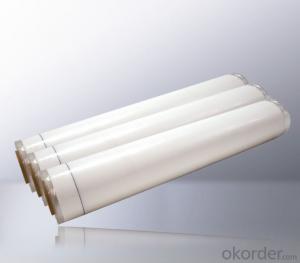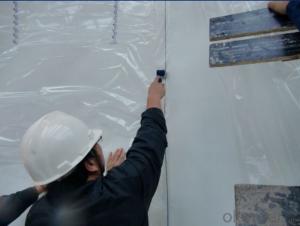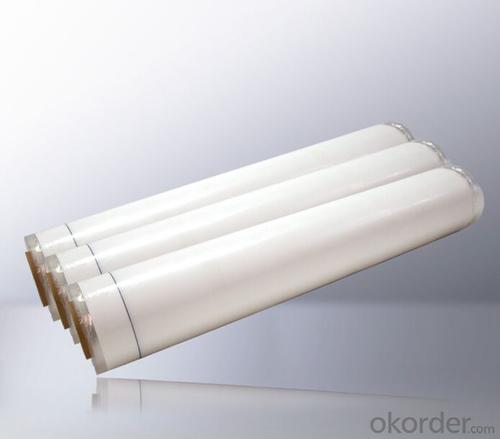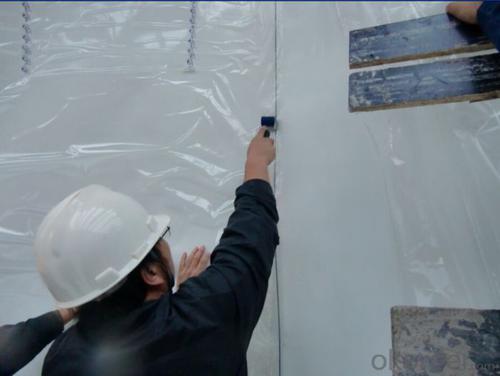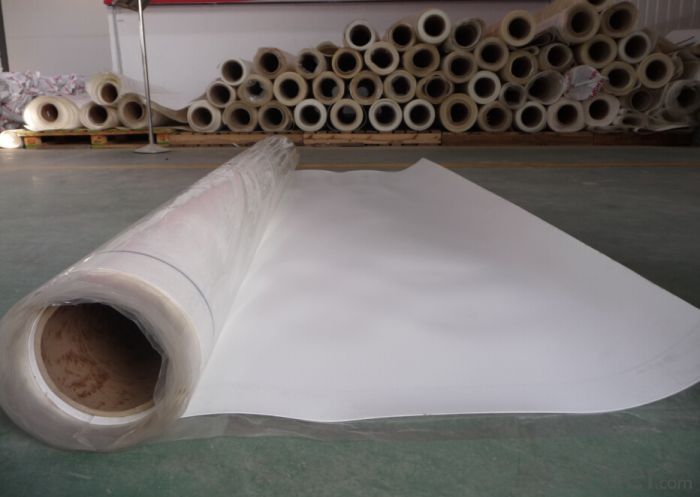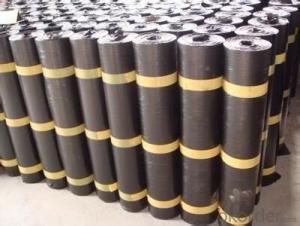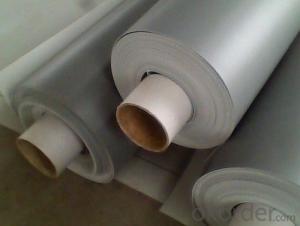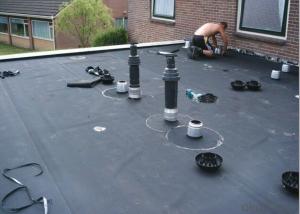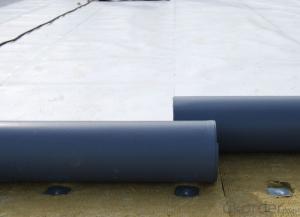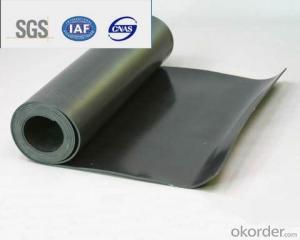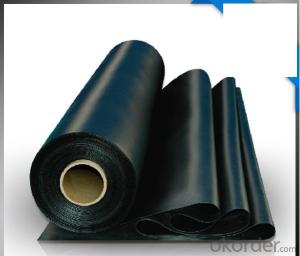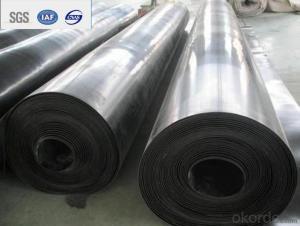HPDE Waterproof Roofing Membrane Thickness with 1.2 mm
- Loading Port:
- Qingdao
- Payment Terms:
- TT OR LC
- Min Order Qty:
- 5000 m²
- Supply Capability:
- 10000 m²/month
OKorder Service Pledge
OKorder Financial Service
You Might Also Like
HDPE Waterproof Membrane Introduction:
HDPE Self-adhesive Waterproof Membrane is specially used in underground project, it can bond with concrete layer tightly. After Membrane bonding with concrete, water can be blocked between membrane and concrete, which can improve the reliability.
HDPE Waterproof Membrane Applications:
Basement,Subway,Tunnel Cave, Other underground public constructions.
HDPE Waterproof Membrane Advantages:
1. Good bonding with concrete applied on membrane, to block water between membrane and concrete further to protect concrete effectively.
2. Low flatness requirement to substrate, reliable overlapping; mechanical fixing, easy application.
3. Sound anti-puncture performance.
4. Adaptable to settlement and distortion.
5. Weather-resisting and anti-UV.
6. Resist to acid, alkali, mold.
7. Eco-friendly material
FAQ:
1. What are we supplying?
We are specialized in producing Colorful Asphalt Roof Shingle, SBS/APP modified bitumen waterproof membrane, Self adhesive bitumen waterproof membrane, PVC waterproofing membrane, EPDM rubber roofing membrane, Single Component Polyurethane Waterproof Coating, and Spray Polyurea Waterproof Coating.
2. How Many years experience do we have?
We have been exported to more than 20 countries in the past 15 years.
3. How long do we usually reply your request?
We always reply our customer within 24 hours.
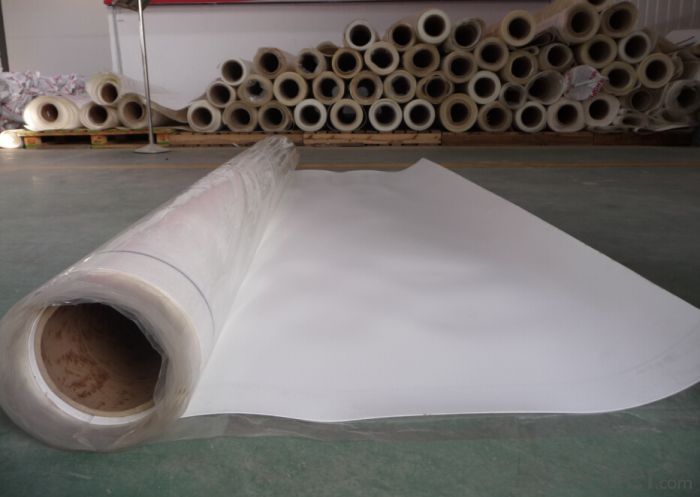
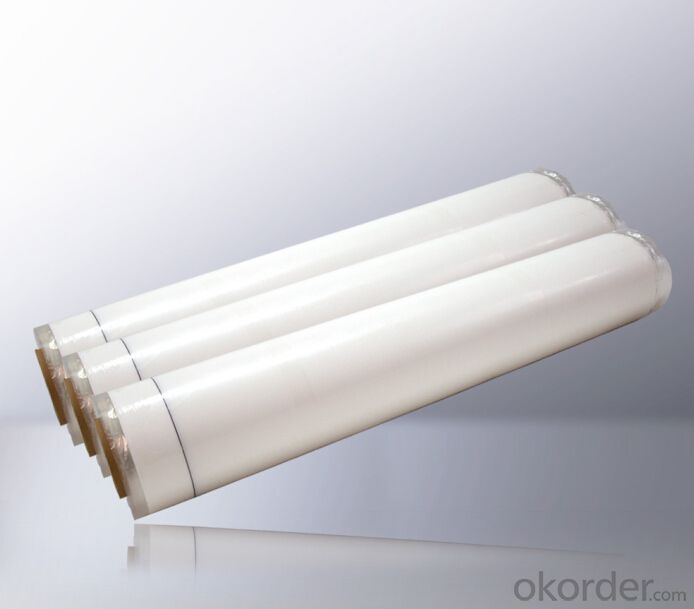
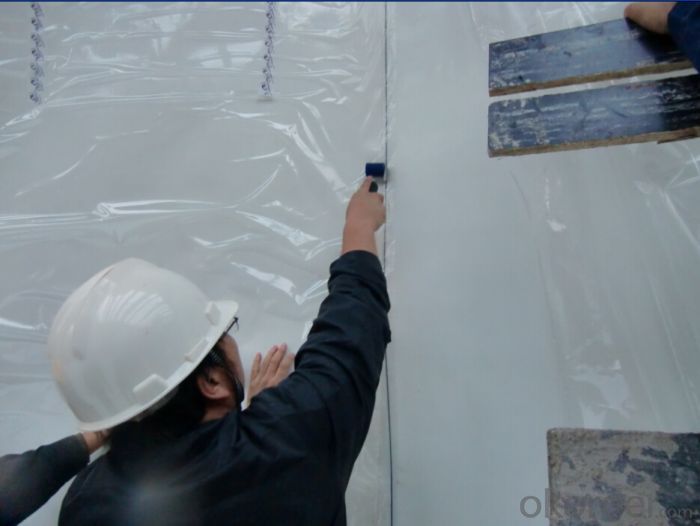
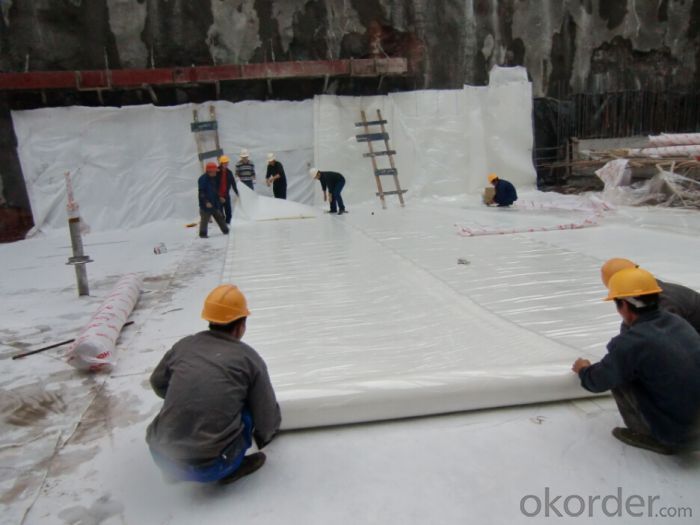
- Q: Can a waterproofing membrane be used in bridge decks or roadways?
- Yes, a waterproofing membrane can be used in bridge decks or roadways to enhance durability, prevent water damage, and extend the lifespan of the structure.
- Q: Can a waterproofing membrane be used for a bathroom?
- Yes, a waterproofing membrane can be used for a bathroom.
- Q: Are there any specific tools or equipment required for installing a waterproofing membrane?
- Yes, there are specific tools and equipment required for installing a waterproofing membrane. Some common tools include a trowel, utility knife, paint roller, brush, and caulking gun. Additionally, a heat gun or torch may be needed for certain types of membranes that require heat activation. It is important to follow the manufacturer's instructions and recommendations for the specific membrane being installed to ensure proper installation and effectiveness.
- Q: Can a waterproofing membrane be applied to uneven surfaces?
- Yes, a waterproofing membrane can be applied to uneven surfaces. However, it is important to properly prepare the surface by leveling or smoothing it out to ensure the membrane adheres correctly and provides effective waterproofing.
- Q: Does a waterproofing membrane prevent water infiltration through concrete or other building materials?
- Indeed, the primary purpose of a waterproofing membrane is to thwart the ingress of water into concrete or other construction materials. It serves as a safeguarding shield that is administered onto the material's surface, creating a layer impervious to water. The composition of this membrane can vary, encompassing substances like bitumen, rubberized asphalt, or liquid polymers. Once installed with precision, it effectively averts water infiltration, thereby safeguarding the edifice against potential water-induced harm or moisture-related predicaments.
- Q: Can a waterproofing membrane be used as a vapor barrier?
- Yes, a waterproofing membrane can also serve as a vapor barrier. Its primary function is to prevent the passage of water or moisture, which inherently includes the ability to block vapor transmission as well.
- Q: Are waterproofing membranes resistant to frost damage?
- Yes, waterproofing membranes are designed to be resistant to frost damage. They are typically made from durable materials that can withstand freezing temperatures without cracking or deteriorating.
- Q: Can a waterproofing membrane be used on precast stone block surfaces?
- Yes, a waterproofing membrane can be used on precast stone block surfaces. Waterproofing membranes are commonly used to prevent water penetration and moisture damage in various types of surfaces, including precast stone blocks. These membranes are designed to create a barrier against water, preventing it from seeping into the surface and causing issues such as mold, deterioration, or structural damage. Applying a waterproofing membrane to precast stone block surfaces can help enhance their durability and longevity by protecting them from water-related problems. However, it is important to carefully follow the manufacturer's instructions and ensure that the chosen waterproofing membrane is suitable for the specific type of precast stone block surface being treated.
- Q: Are waterproofing membranes suitable for historical preservation projects?
- Depending on the specific circumstances and goals of a historical preservation project, the use of waterproofing membranes may be suitable. Waterproofing membranes are designed to prevent water infiltration and protect historical structures from moisture damage. In certain situations, historical buildings may have deteriorated or ineffective existing waterproofing systems. In these cases, modern waterproofing membranes can be a viable option to preserve and safeguard the structure. These membranes can be discreetly installed without altering the building's original appearance or architectural integrity. However, it is crucial to exercise caution when considering the use of waterproofing membranes in historical preservation projects. The potential impact on the authenticity and historical value of the structure must be carefully assessed. Some historical buildings may require specialized preservation techniques due to unique construction methods or materials, making alternative preservation methods more appropriate than using membranes. Furthermore, the long-term consequences and maintenance requirements of waterproofing membranes should be taken into account. Certain membranes may have a limited lifespan, necessitating periodic inspections and maintenance to ensure their continued effectiveness. This ongoing maintenance should be included in the preservation plan and budget. Ultimately, the decision to incorporate waterproofing membranes into historical preservation projects should be based on a thorough evaluation of the building's specific needs, characteristics, and preservation objectives. Consulting preservation experts, architects, and engineers can help determine the most suitable approach for each unique project.
- Q: Does a waterproofing membrane require any specific preparation of the substrate before installation?
- Yes, a waterproofing membrane typically requires specific preparation of the substrate before installation. The substrate, which is the surface on which the membrane will be applied, needs to be clean, dry, and free from any contaminants or debris that could hinder the adhesion of the membrane. This usually involves removing any loose materials, such as old paint or sealants, and smoothing out any uneven surfaces. Additionally, it may be necessary to repair any cracks or damage in the substrate to ensure a proper and effective installation of the waterproofing membrane. Following the recommended preparation procedures will help to maximize the performance and durability of the membrane, ensuring its effectiveness in preventing water penetration and protecting the underlying structure.
Send your message to us
HPDE Waterproof Roofing Membrane Thickness with 1.2 mm
- Loading Port:
- Qingdao
- Payment Terms:
- TT OR LC
- Min Order Qty:
- 5000 m²
- Supply Capability:
- 10000 m²/month
OKorder Service Pledge
OKorder Financial Service
Similar products
Hot products
Hot Searches
Related keywords
